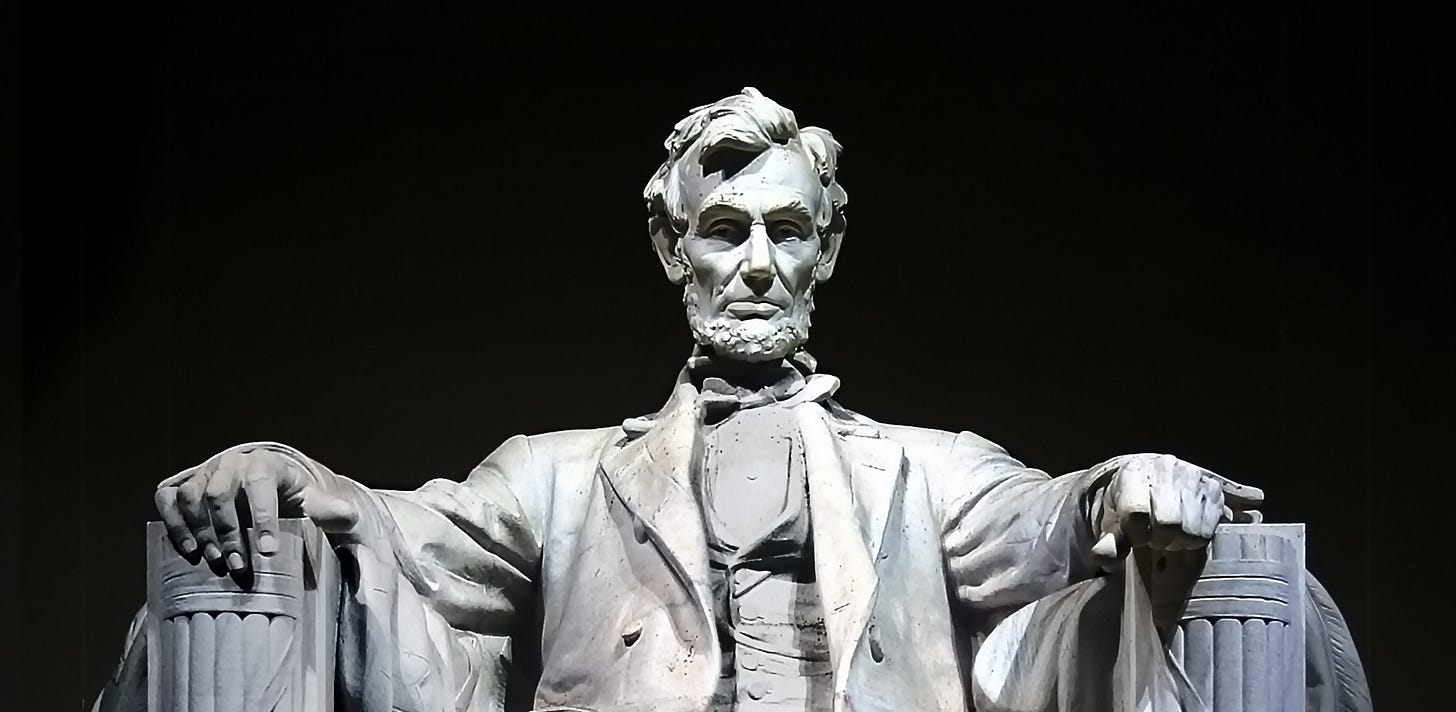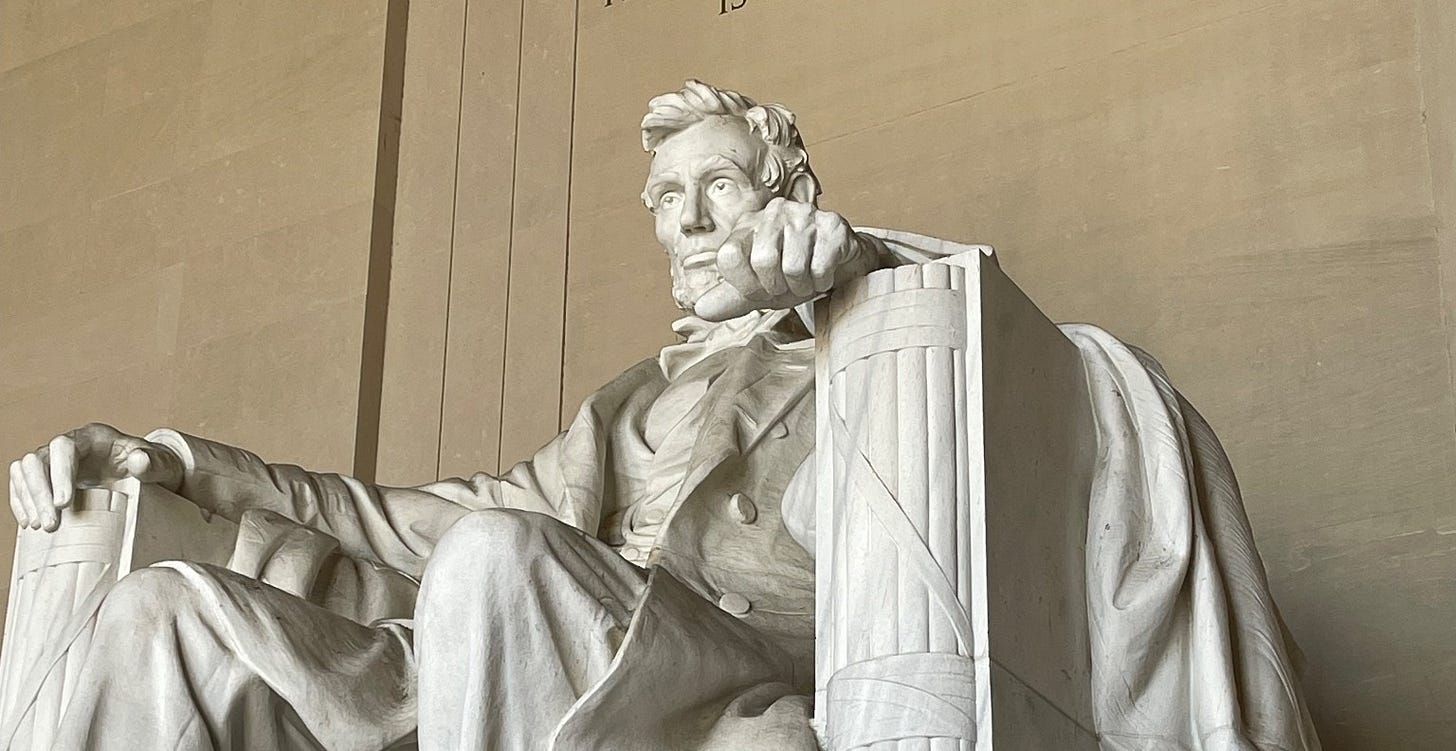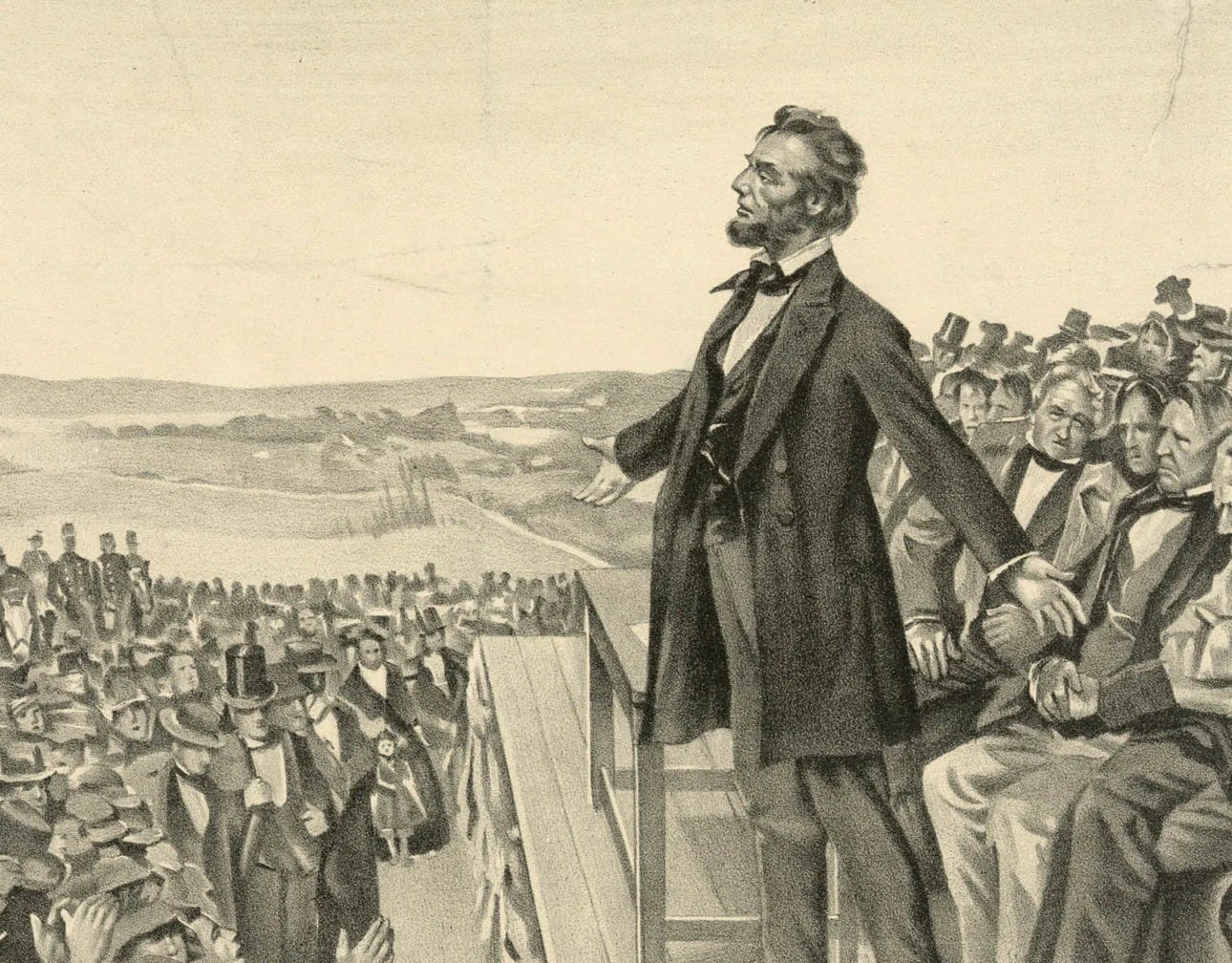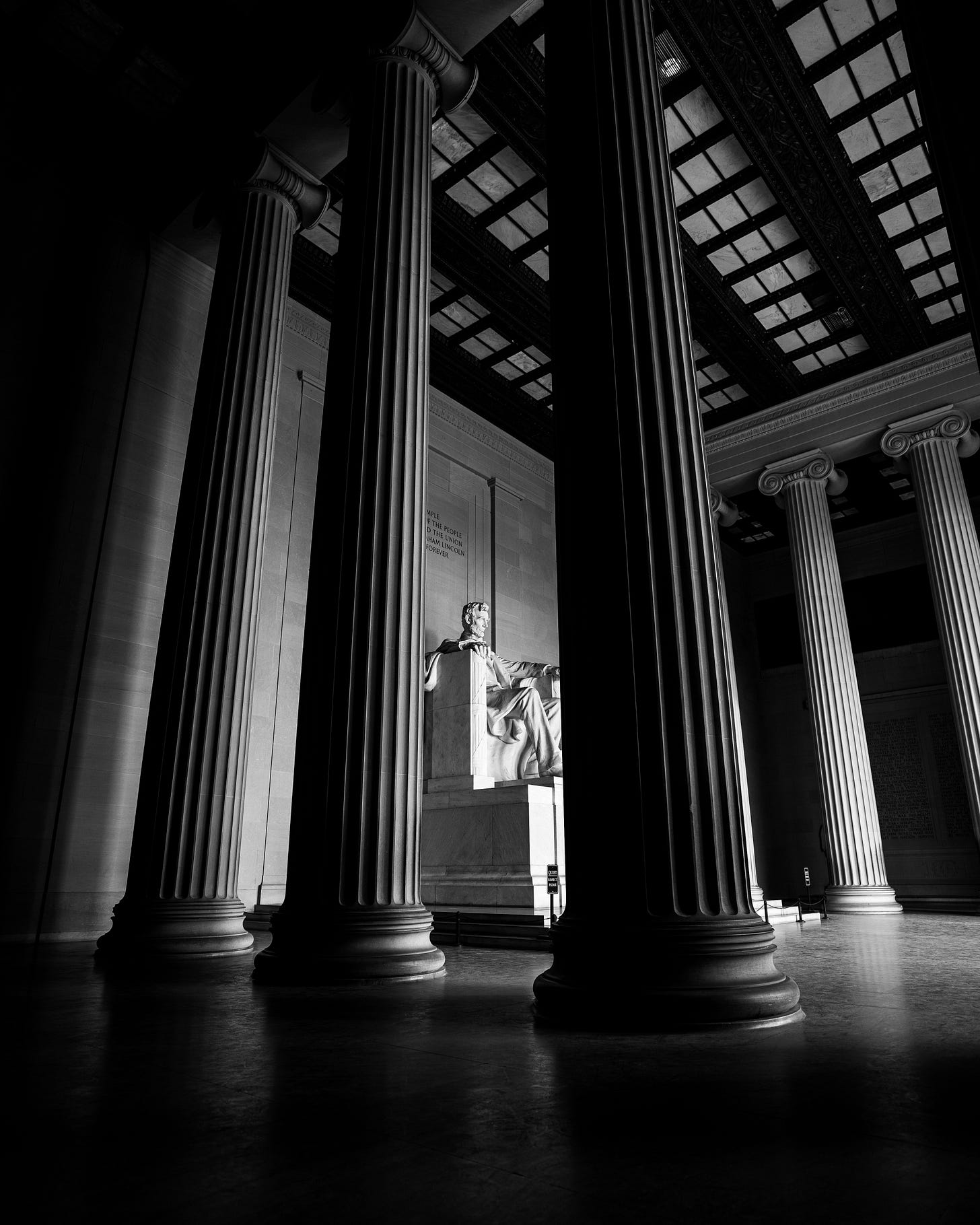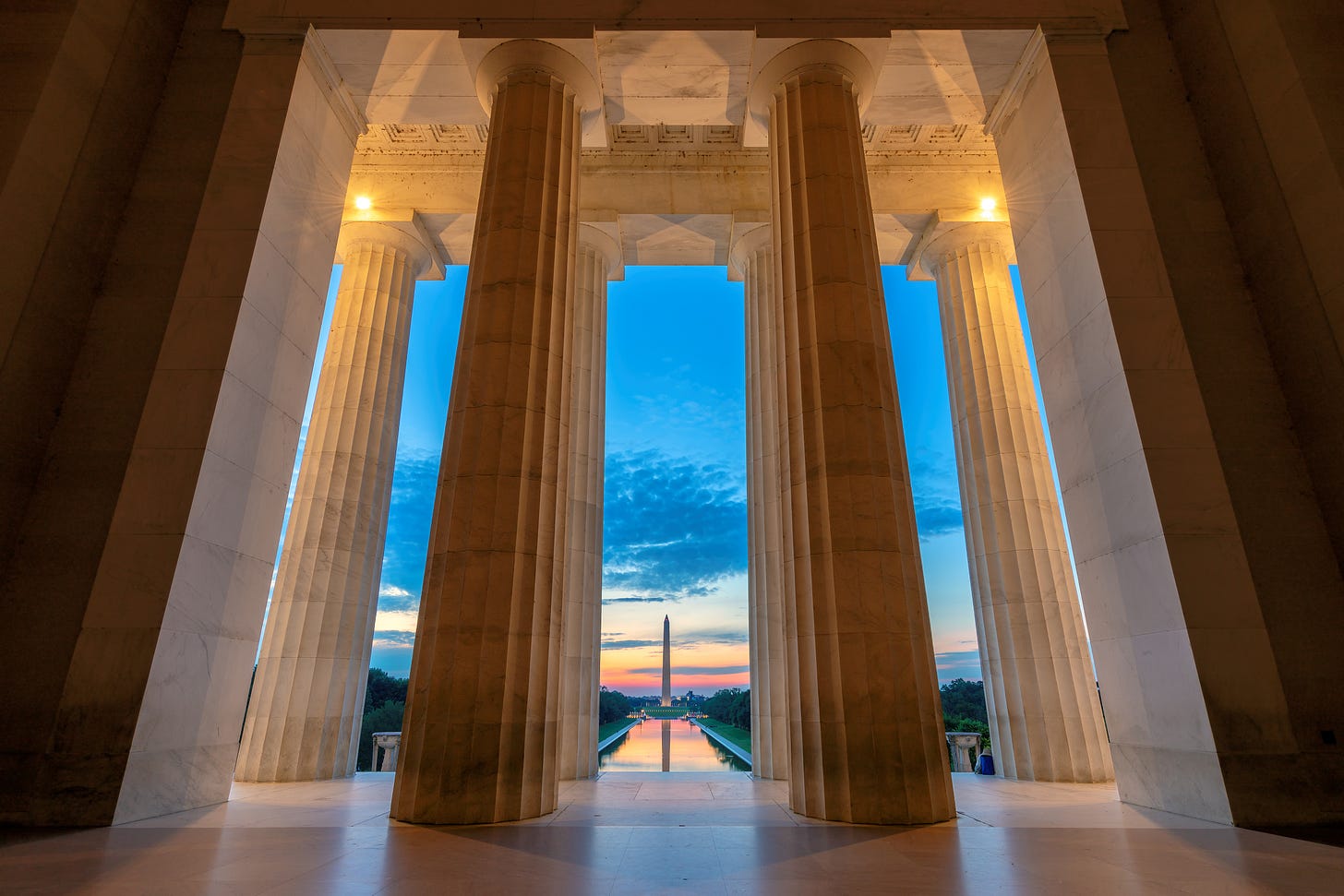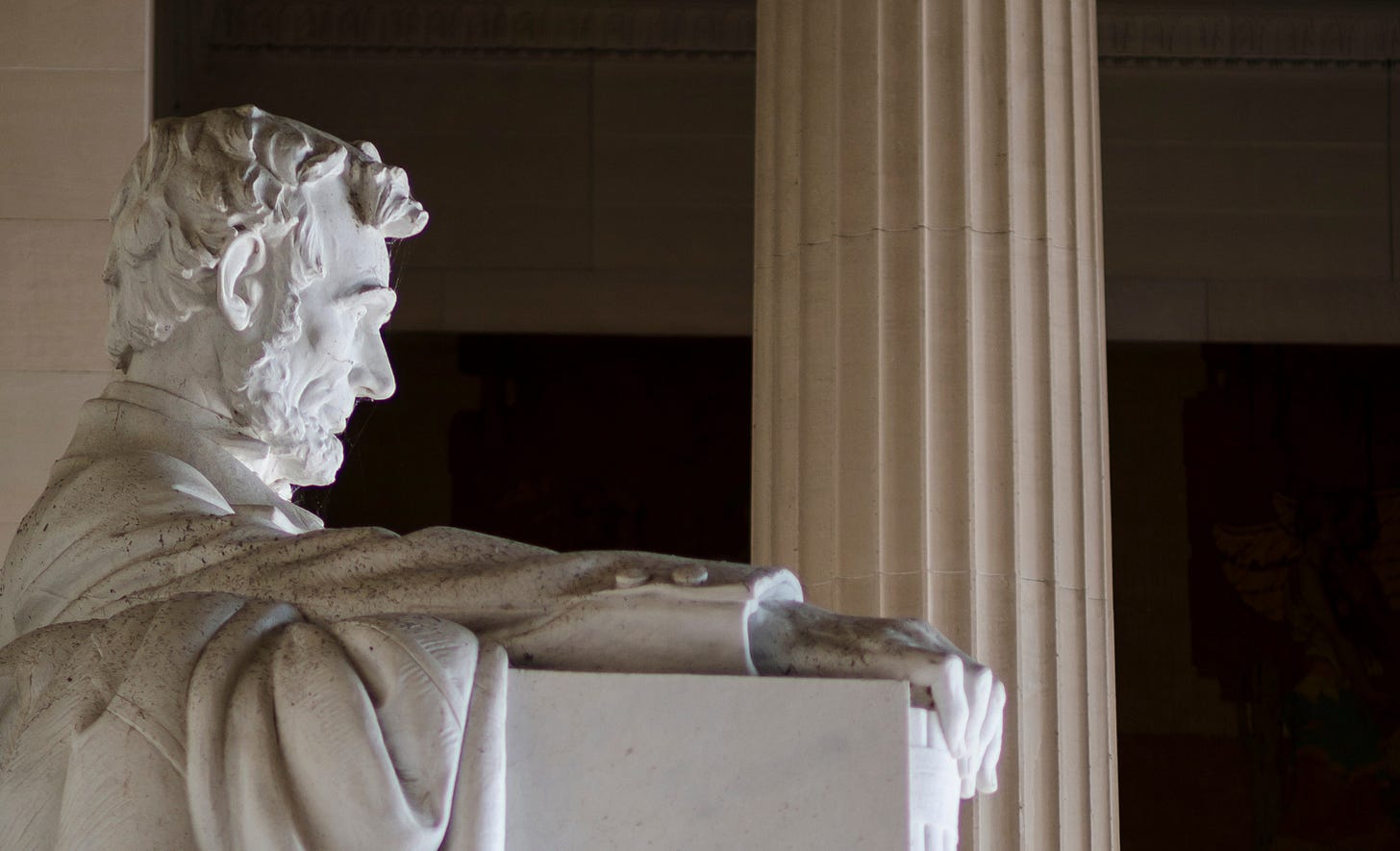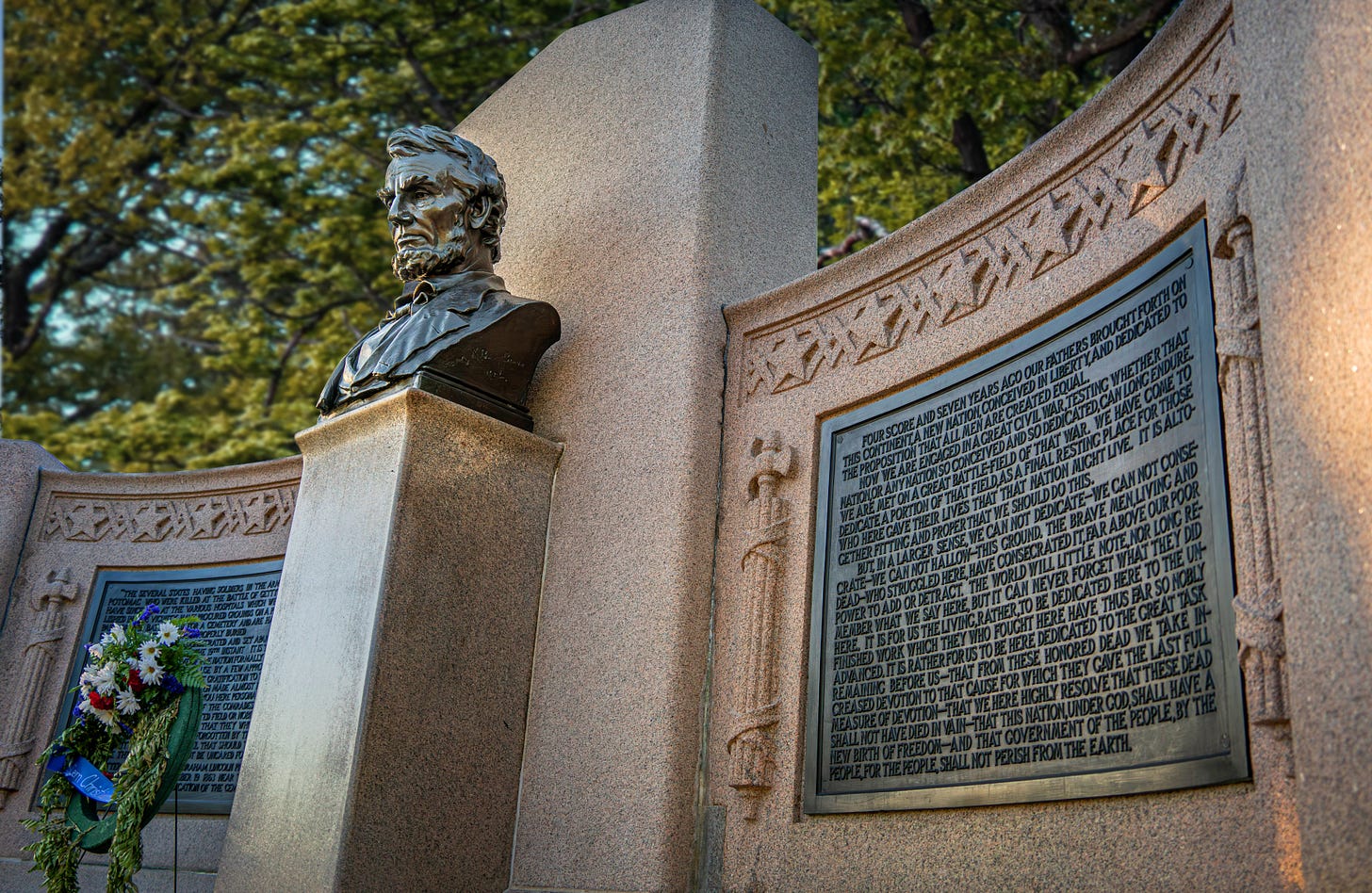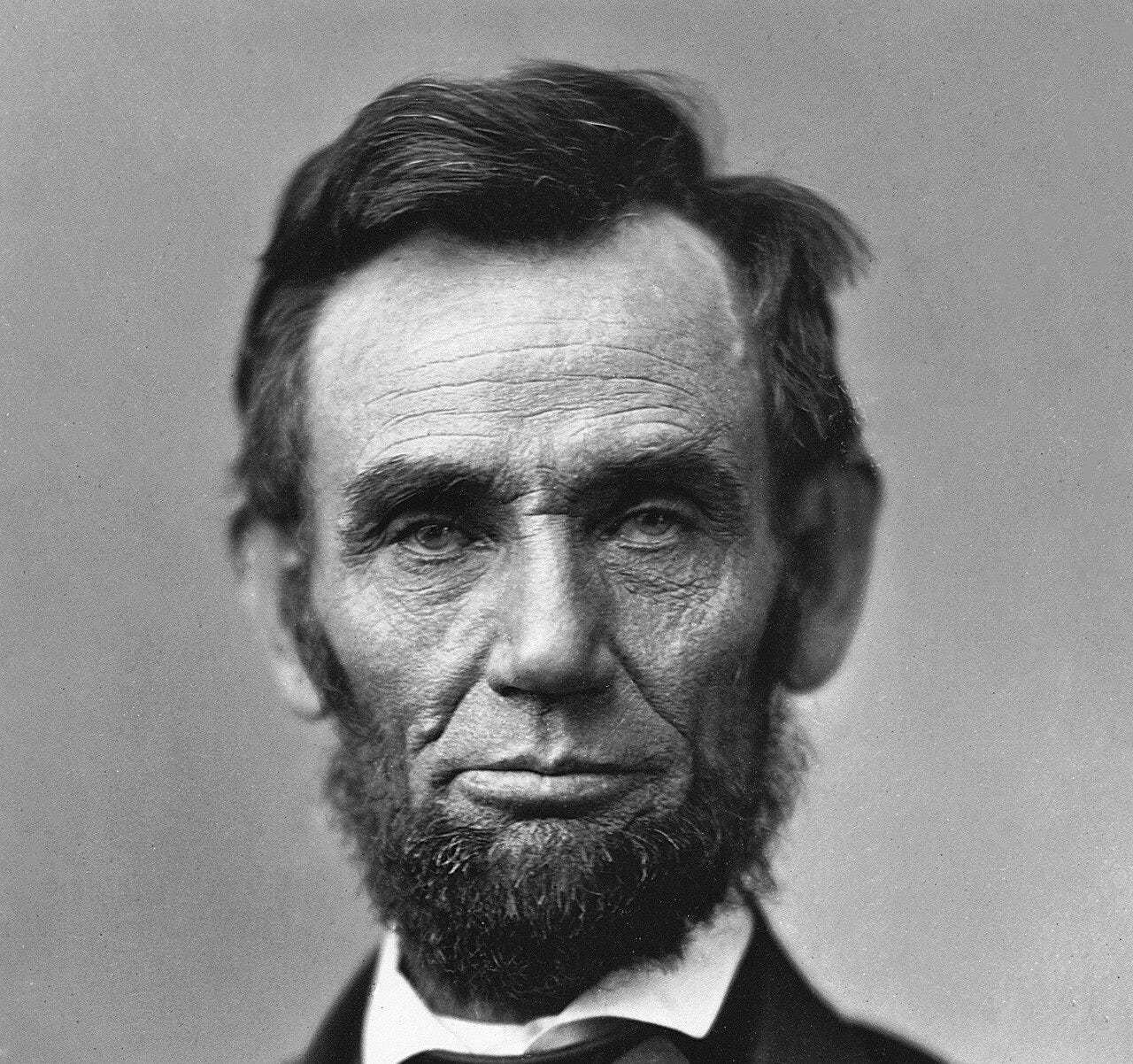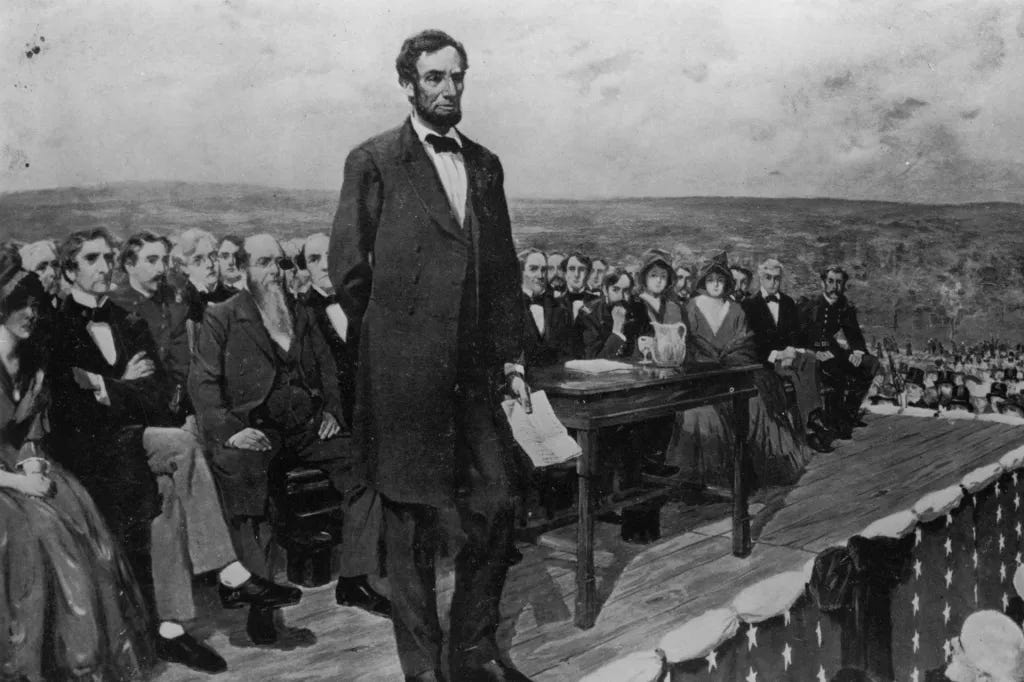Lincoln gave the Gettysburg Address
A Turning Point in American History
Four months after the guns fell silent at Gettysburg, on November 19, 1863…162 years ago today…Abraham Lincoln stepped onto a wooden platform in a half finished cemetery to say a few words. What he gave the world in just over two minutes would become one of the most beloved speeches in history.
The Battle of Gettysburg that July had been horrific. Over three scorching days, nearly 170,000 Americans fought across the Pennsylvania hills and fields. When it ended, more than 50,000 men lay dead, wounded, or missing. It was the bloodiest single battle ever fought on American soil. Robert E. Lee’s Confederate army limped back to Virginia, never to invade the North again. Along with the Union capture of Vicksburg the next day, Gettysburg was the moment the tide of the Civil War finally turned.
By November, workers were still gathering and reburying thousands of bodies. The new Soldiers’ National Cemetery needed a proper dedication, so the organizers invited the era’s most famous speaker, Edward Everett, to deliver the main address. He spoke brilliantly for two full hours. Then, almost as an afterthought, they asked President Lincoln to add “a few appropriate remarks.” Lincoln rose, wearing his familiar black suit and stovepipe hat, and spoke 272 quiet words that changed how Americans understood their country.
He began with one of the most famous opening lines in history:
“Four score and seven years ago our fathers brought forth on this continent, a new nation, conceived in Liberty, and dedicated to the proposition that all men are created equal.” With those words, Lincoln reminded everyone that America was founded on the idea of equality, not just on a constitution or a union of states.
Many people at the time saw the war simply as a fight to hold the country together. Lincoln said it was bigger than that. The war was testing whether a nation built on the promise of equality could survive at all. The men who died at Gettysburg, he said, had given “the last full measure of devotion.” The living now had a duty: to make sure “these dead shall not have died in vain, that this nation, under God, shall have a new birth of freedom, and that government of the people, by the people, for the people, shall not perish from the earth.”
Newspapers the next day gave mixed reviews. Some called it too short or too plain. One paper sneered that the president’s remarks would soon be forgotten. Edward Everett knew better. He wrote Lincoln the very next day and said, “I wish that I could flatter myself that I came as near to the central idea of the occasion in two hours as you did in two minutes.”
Over time, people realized Everett was right. The Gettysburg Address quietly shifted the war’s purpose. It tied the fight to preserve the Union with the greater struggle for freedom and equality…ideas that would soon lead to the end of slavery with the 13th Amendment.
Today, Lincoln’s words are carved into the Lincoln Memorial in Washington, D.C., memorized by schoolchildren, and quoted whenever Americans talk about what their country stands for. On a chilly November afternoon in 1863, amid rows of fresh graves, a tired president with a high, clear voice gave the nation a new mission statement. It is one that still echoes every time we try to live up to the promise that all of us are created equal.


